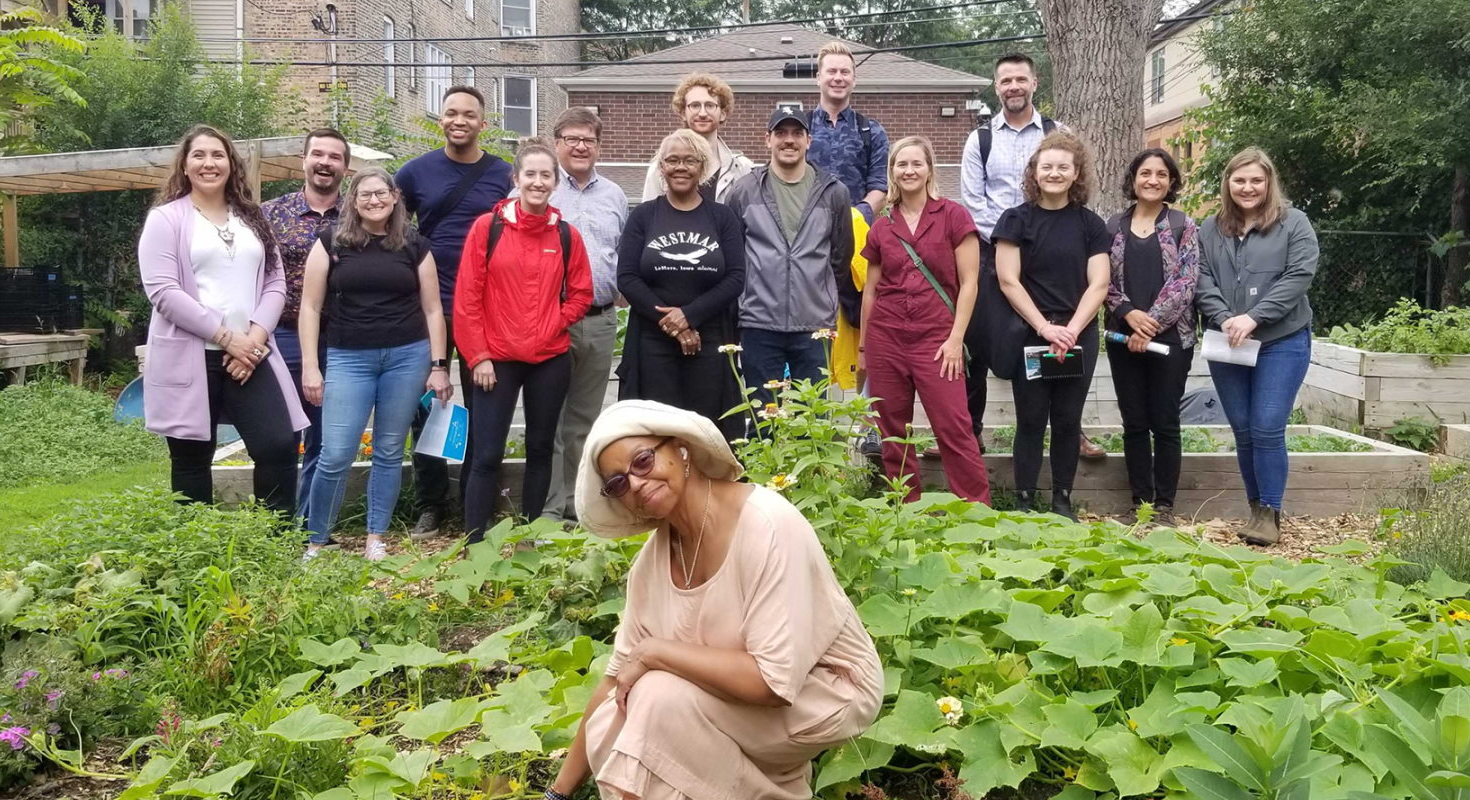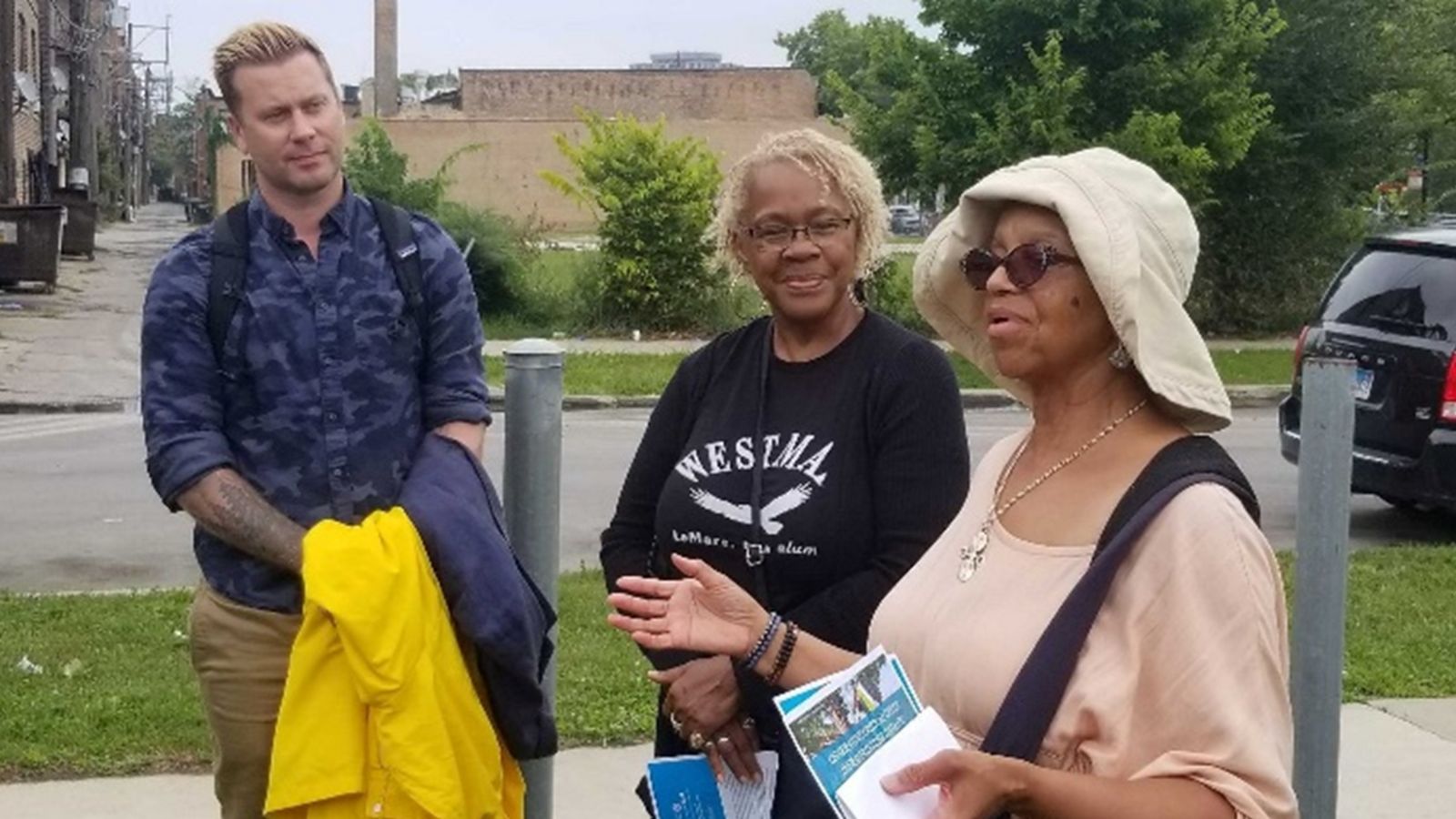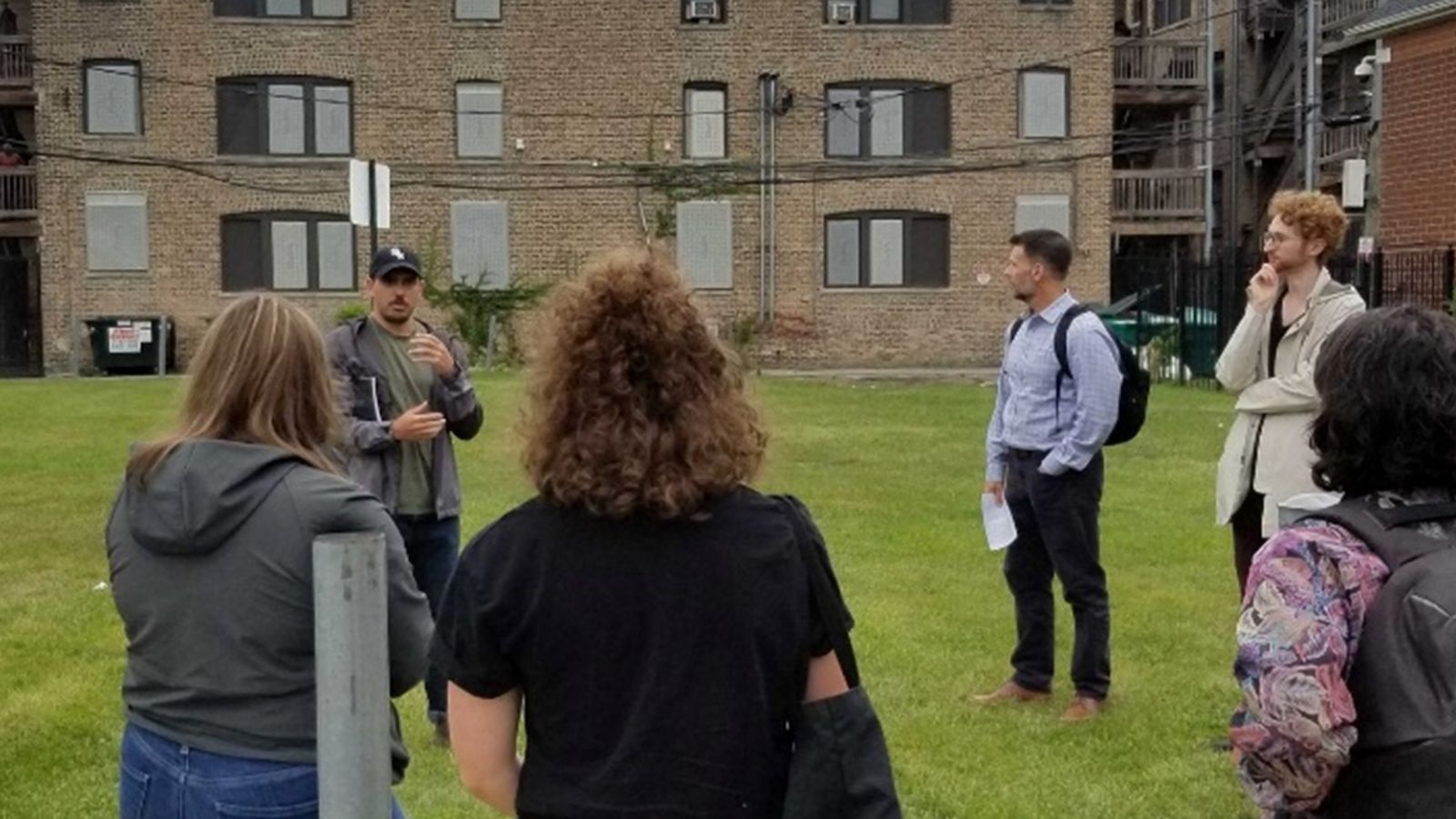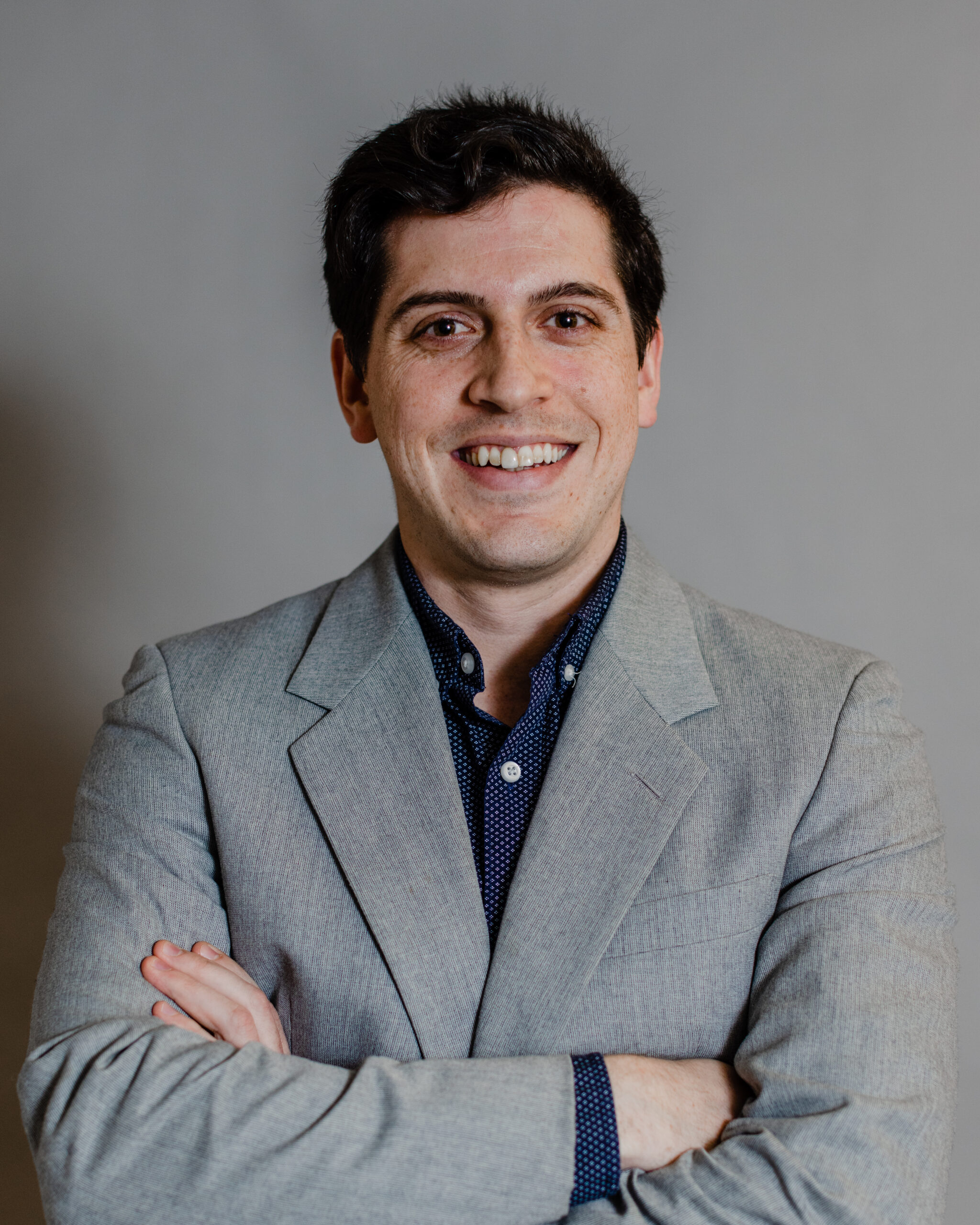
Delta Institute’s boards and staff visiting project partners at South Merrill Community Garden in South Shore neighborhood of Chicago.
By Malcolm Mossman, AICP
It may come as a surprise to some – and as no surprise to others – when I say that urban planning has had a problematic history.
Oftentimes, urban planners have maintained a top-down approach to community development where the most informed and vital voices—the voices of the people who live there—are not given a seat at the table and are excluded from the planning process.
What has been the result?
This approach has led to many unintended—and yes, oftentimes intended—inequitable impacts on several communities here in the Midwest. Many communities of color on Chicago’s South Side, for example, are addressing longstanding environmental injustices resulting from decades of industrial pollution, economic disinvestment, and extractive planning policies.
This, however, is not our approach at Delta Institute.

Our CEO, Bill Schleizer, at site in Chicago’s South Shore neighborhood with partners Rita Stewart and Diane Hodges of the nearby South Merrill Community Garden.
Since joining Delta Institute in 2021, I’ve fully embraced our approach to urban planning and community development: that we collaborate and consult with local community partners and that we recognize and celebrate that they are in the driver’s seat—not outside planners. My role is to offer technical assistance where our community partners need it most.
By partnering with community-based organizations like Emerald South Economic Development Collaborative, for example, Delta is helping advance their Terra Firma initiative to “beautify, activate, and maintain 205 acres of vacant land on Chicago’s mid-South Side.” Our partnership with Blacks in Green, as another example, will help advance their vision of creating a Sustainable-Square-Mile in West Woodlawn: a community vision of “walkable places where neighbor-owned businesses, neighbor-owned properties, and the conservation lifestyle harmonize to circulate neighbor dollars, build neighbor wealth, and promote neighbor culture while supporting ecosystems and acting to surmount disruption.”

This past summer, I had the chance to lead a group of Delta’s volunteers to explain the redevelopment plans underway at a vacant lot in Chicago’s Washington Park neighborhood.
So, then what is Delta’s role?
In my role as a Programs Specialist at Delta Institute, I lead our team to support our partners with technical assistance to redevelop four vacant brownfields into green spaces. We are engineering these spaces into sites that integrate Green Infrastructure, systems that utilize natural solutions like rain gardens and tree plantings to help mitigate the increased flooding risks our partners face as a result of climate change.
These nature-based climate solutions also are vital to addressing other pertinent community concerns, like supporting mental health. Access to nature and green spaces helps lower stress levels and spurs creativity—and this is especially true for children. Our partners want to create opportunities for their families and kids to interact with natural spaces freely.
This is one of several reasons why Delta Institute will soon be helping facilitate a BioBlitz: an event where we provide training to residents as “citizen scientists” to conduct local biodiversity assessments of the plants, flowers, insects, and other animals living in their neighborhoods. Beyond collecting biodiversity data, this event will be an even more important opportunity for community members and children to witness the visions of these vacant lots come to life as activated safe spaces for rest and relaxation, blossoming with life and nature all around them.
This is the kind of urban planning and development that we can only achieve through inclusive community engagement.
I want to thank all of our supporters—for making all of this progress to date possible. If you are able, please consider supporting our work as we head into the next phase of our work and the work of our partners by donating below or learning more about the other ways you can donate to Delta Institute. I’m most excited for this next “shovel-ready” phase of our work to begin not only for its environmental benefits but also because it will be the tangible realization of months of community-driven planning and visioning workshops.

Thank you!
Malcolm Mossman, AICP
Senior Specialist, Programs; Delta Institute

